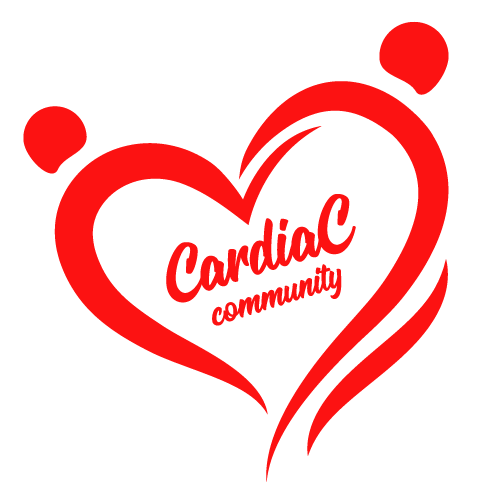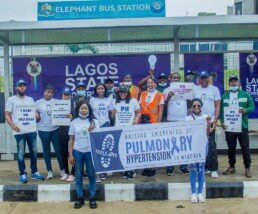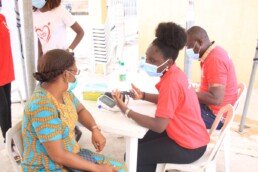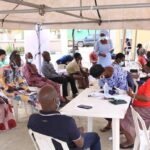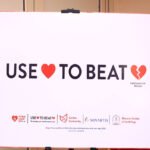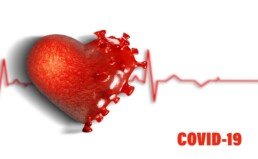HEART HEALTH: HYDROGENATED FAT; GOOD OR EVIL?
What are Hydrogenated Fats?
Hydrogenated fats (also called trans-fatty acids) are manufactured fats created during a process called hydrogenation, whereby hydrogen units are added to polyunsaturated fatty acids to prevent them from becoming rancid and to keep them solid at room temperature.
Hydrogenated oil contains a type of man-made fat, called trans fat, which increases the risk of heart disease, stroke and diabetes. Although once "generally recognized as safe," the Food and drug Administration (FDA) had declared that no food manufacturers are allowed to add partially hydrogenated oils to their foods as from January 1, 2020.
There are two types of hydrogenated oils; Fully and partial hydrogenated oil.
Full hydrogenation involves creating enough double bonds to make the fat completely solid at room temperature, which does not contain those hard-to-metabolize trans fats. In essence they become saturated fats, but they contain no trans fat and has no significant effect on cardiovascular risk.
List of Fully Hydrogenated Oils are;
- Peanut / groundnut Oil
- Corn Oil
- Cottonseed Oil
- Avocado Oil
- Olive Oil
- Soybean Oil
- Palm Oil
- walnut oil
Partial hydrogenation, involves the creation of double bonds to make the fat semi-solid at room temperature. It ends up containing trans fats, which is a type of man made fat that simultaneously increases your bad or LDL cholesterol, while lowering your good or HDL cholesterol. It also increases the risk of heart disease, stroke and diabetes.
Examples of foods with partially hydrogenated fats are;
- Margarine
- Vegetable shortening
- Packaged snacks
- Baked foods
- Fried foods
- Coffee creamers
- Fast foods
Why Is Hydrogenated Oil Unhealthy?
The process of hydrogenating oil to create a trans fat changes its chemical makeup and makes it difficult for the body to metabolize. Instead of being burned for energy, it’s stored in the body. This increases one’s risk of having heart diseases and other health problems
How to avoid or reduce the intake of partially hydrogenated oil;
Since partially hydrogenated oil contains trans fats, it’s best to avoid such food products by doing the following;
- Read food labels
A product labelled as free from trans fats doesn’t mean it is. Even if a product lists 0 grams of trans fat on the label, check the ingredients list for partially hydrogenated oil. food labels claim no trans fats have been added, but partially hydrogenated oil may still be listed as one of the ingredients. So it’s important to read both the food label and the ingredients listed.
- Always go for healthy substitutes
Avoid all vegetable oils and margarine that has partially hydrogenated oil and substitute with other cooking fat such as olive oil, coconut oil peanut oil, etc
- Reduce consumption of fast foods
Fried foods, such as french fries and hamburgers, are often cooked in vegetable oils, which may harbor trans fats. Furthermore, the trans fat concentration increases each time the oil is reused.
- Avoid or limit the intake of packaged foods
Partially hydrogenated oils go hand in hand with food preservation, which often ends up in packaged foods. Decrease your dependence on packaged foods.
Abiola Salami
Cardiac Dietitian
Living with an invisible disability in Nigeria

When you hear of a disabled person in Nigeria, what first comes to mind and what most people expect to see is one with physical impairments either seated on a wheel chair, holding a cane, people participating in the Special Olympics, however, not all disabilities are visible.
According to Merriam- Webster Dictionary,"disability is a physical, mental, cognitive or developmental condition that impairs, interferes with, or limits a person's ability to engage in certain tasks or actions or participate in typical daily activities and interactions".
So many illnesses and conditions are disabilities and a lot of times these impairments are not immediately apparent. People living with these illnesses may not present glaring symptoms.
Invisible disabilities even though are “hidden” affects tremendously the quality of the lives of people living with them. Those with invisible disabilities can present varying symptoms such as debilitating pain, fatigue, weakness, cognitive dysfunction, learning differences and mental disorders, as well as hearing and vision impairments.
A billion people worldwide live with some kind of disability, according to the World Health Organisation, and one US survey found that 74% of those disabilities don't use a wheelchair or anything else that might visually signal their impairments to the outside world.
I’m living with pulmonary hypertension, a chronic illness associated with abnormally high pressure in the arteries that move blood from the heart to the lungs. This illness affects and limits my physical capabilities. Unfortunately, most people misinterpret my constant exhaustion to being lazy or laid back, unserious and one looking for unnecessary attention because all they see is a woman who doesn’t have any physical sign of an illness.
I’ve been told severally “you don’t look sick”. I’m mostly seen as one who likes giving excuses.
Pulmonary hypertension reduces the oxygen level in the body and this causes extreme fatigue, breathlessness, palpitation, dizziness and limits everyday activities like climbing the stairs and walking. Getting out of bed proves really difficult for me as well and symptoms would get worse as the illness progresses.
I’m not in any way making any comparison with others living with physical disabilities; it’s extremely difficult living with a disability either visible or not hence the genesis of this write-up is to educate people that if it can’t be seen, doesn’t mean it doesn’t exist, we shouldn't undermine or overlook people fighting and battling invisible illnesses.
We are not lazy neither exaggerating our illnesses and symptoms, so please believe when we say we can’t carry out some simple everyday tasks and try lending us a helping hand when we ask for help.
In Nigeria disabled people don’t get any form of special benefits, they are instead stigmatized. So I fully understand why people who “don’t look sick” try to hide it from others and never want to be associated with the word “disability”.
Commonly known chronic illnesses like sickle cell, some heart diseases diabetes, epilepsy, rheumatoid arthritis and so many others fall under invisible disabilities.
In Nigeria, rare invisible illnesses like lupus, fibromyalgia, pulmonary hypertension, mental illness like schizophrenia and many others cannot be properly managed. They are mostly not diagnosed or misdiagnosed. Lack of proper health care, low availability of drugs and social-religious factors like superstition and stigmatization are major challenges faced by patients and it affects the outcome of their illnesses.
A lot of Nigerians are not aware of invisible disabilities and majority would overlook it, pray, fast and believe it will never afflict them and their loved ones. People battling and living with invisible disabilities are all around us, it would be nice to show more empathy and understanding towards them. You never know, your healthy looking neighbor, colleague, friend, church member might be struggling with an invisible disability. Kindly lend a helping hand and listening ear if they confide in you without being judgmental.
Cardiac Community to host 3rd edition of Walk4ph to raise awareness of Pulmonary Hypertension.
In a bid to raise awareness of pulmonary hypertension; a rare deadly disease that affects the hearts and lungs, Cardiac Community is set to host the 3rd edition of its annual walkathon tagged walk4PH. The walkathon will hold at Police College Ikeja on the 7th of May 2022 by 8am.
This year’s event themed “Pulmonary Hypertension has no borders”, is a nod to the fact that PH can affect people of all age, sex, race, social, and ethnic backgrounds.
Speaking on this year's event, Ayotunde Omitogun, Co-founder Cardiac Community said, "This year will be the 10th anniversary of World Pulmonary Hypertension day and we are happy to join them to celebrate this day and raise the necessary awareness of this deadly disease in Nigeria.
"Pulmonary hypertension causes the heart to overwork, which can eventually lead to heart failure. This disease has no known cure and it is usually confused and misdiagnosed as asthma and other heart and lung diseases. So we are glad to be doing this".
The walkathon will also commemorate World Pulmonary Hypertension Day (WPHD), which is annually held on the 5th of May since 2012. The first and second edition of the walkathon took place in 2019 and 2021.
Cardiac Community is a Non-Governmental Organization committed to fighting heart diseases in Nigeria. They engage in supporting the fight against heart diseases through health awareness via online platforms, public outreach programs, and campaigns.
They equally provide psychological and emotional support through its support groups as well as financial support through fundraising for patients who can't afford to pay for health services.
Cardiac Community Organises The 2nd Edition Of Walk4PH To Commemorate World Pulmonary Hypertension Day
Cardiac Community; a non-governmental organisation committed to fighting cardiovascular diseases in Nigeria organised the second edition of Walk4PH to commemorate World Pulmonary Hypertension Day. The walk organised annually helps shine a light on the disease, as well as raise funds to support people living with the disease in Nigeria.
The second edition was a virtual walkathon that took place from the 22nd to the 29th of May 2021. Participants walked from different location across the world in solidarity and support to the cause. There was also a group walk in Lagos with the Cardiac Community team which held on Saturday 22nd of May 2021.
The group walk started from Ndubuisi Kanu park, Alausa and ended at Ikeja under-bridge round about. Bicycle riders from the Lagos Cyclers Club also particiapated in the walk helping to shine a light on PH.
The co-founder Cardiac Community and convener of Walk4ph; Ayotunde Omitogun, diagnosed with pulmonary Hypertension 8 years ago discussed the importance of raising awareness on this rare illness that affects the lungs and heart. According to her “pulmonary hypertension is a deadly and complex disease, it shouldn’t be in the dark, awareness is key. PH is a highly progressive disease and without the right treatment, it can result in heart failure and death but due to the obscurity surrounding the disease, PH is mostly misdiagnosed or diagnosed at the advanced stage since it mimics symptoms of other respiratory diseases such as asthma and tuberculosis.”
“PH is complex and can be associated with other diseases which include congenital heart defect, HIV infection, left heart disease and sickle cell disease. Unfortunately, Pulmonary Hypertension has no known cure, but it can be managed with treatments to improve symptoms and improve the quality of life of people living with the conditions. The major challenge is that many of the medications are very expensive and not available in Nigeria. One of the drugs available and approved for the treatment of Pulmonary Hypertension, Sildenafil, is shrouded in stigma due to its use in the treatment of Erectile Dysfunction. Our goal is to fundraise to support patients who can’t afford or have difficulty getting this medication in Nigeria” She added.
ABOUT WALK4PH
Walk4PH is a walk-a-thon aimed at raising awareness of Pulmonary Hypertension; a chronic illness associated with high blood pressure in the lungs and completely different from the normal hypertension (systemic hypertension). Pulmonary hypertension causes the heart to overwork and this can eventually lead to heart failure. This disease has no known cure and it is usually confused and misdiagnosed for asthma and other heart and lung diseases. This disease is though rare but exists in Nigeria, pulmonary Hypertension is still in the dark and unknown in Nigeria.
To learn more about walk4ph visit:
Instagram: @walk4PH
Twitter: @walk4PH
Facebook: walk4PH
LinkedIn: Cardiac Community
Website: www.walk4ph.com
Hypertension Screening and Awareness at Lagos State Secretariat Mosque

The second venue Cardiac Community visited for the #wetinbeyournumber campaign was Secretariat Mosque, Alausa Ikeja.
We were able to screen over 100 people.
We also had a cardiac dietitian @mz_sarii who gave nutritional advice on ways to prevent and manage hypertension.
Thank you to all the amazing volunteers and our partner Novartis
Hypertension Screening and Awareness at Redemption Camp
Wetin be your number?
When last did you check your blood pressure?
Did you know?
Hypertension is the no1 contributing risk factor for global death, killing an estimated 10 million people worldwide.
Only half of the people living with high blood pressure are aware of it.
Cardiac Community partnered with @Novartis to provide blood pressure screening and awareness in various locations in Lagos and Ogun State to commemorate World Hypertension Day 2021.
Our first awareness and screening took place at the Redemption Camp, Lagos - Ibadan Expressway, Ogun State.
We screened over 200 people.
We are grateful to everyone who supported and participated in the screening.
Thank you!
Living With Pulmonary Hypertension In Nigeria
Good news! I needed this one. My mind was doing cartwheels.
I could not properly define my feeling of elation as I got the call from the Indian hospital early December 2019; "we have a Nigerian heading back to Nigeria in some days’ time and he has agreed to help bring your drugs along". I was due for one after series of heart-breaking ones and the feeling of wonder that accompanies them.
I thought: Finally! The yuletide has finally brought me good tidings, one that was badly needed. It has been months of waiting in anticipation and palpable fear in some cases, to hear such great news; It was a relieve I sought.
A minor glitch occurred. It sounded to minor that it is barely believable that all of that good news and the tidings expected have gone down the drain. A glitch in the payment platform and this affected the plan and ability of the Indian hospital to meet up with the Nigerian’s travel plans. A lot of lemons in life. A lot of strive and assumed good tidings but a lot of times, as I have to realize, it has to be mutely celebrated until the actual realization. This was a celebration cut short, and it came with grave consequences as well.
We couldn't get another Nigerian to help bring the drugs early in the year and then the covid-19 pandemic struck, and all the goods news and associated feelings went back into Santa’s box.
It is just a minor peek into the ordeal I go through every single time I needed to buy drugs. I have to place the order for them in India and wait till I could get a Nigerian coming in, before I could get them.
Most times, I have been able to get a part of my medications from the UK, but the major drugs needed are way more expensive there. In simple comparative analysis, the price of a month’s dosage for one of the medications is equivalent to a year's rent for a two bedroom flat in a high brow area in Lagos; that’s way more than what I get it for in India.
Why the medications? Why the apprehension? It is because of my journey with PH! Pulmonary Hypertension - a severe disease that affects the lungs and heart - has no known cure, it can only be treated to slow down its progression and improve the quality of life for people living with it. It is akin to a death sentence when these medications are nearly impossible to get for Nigerians living with the disease; because the question would be: how do they get a good quality of life?
Life happens to all of us, but Nigeria happens to some of us. We still have to pick up the pieces and soldier on like nothing bothers us, in many of the instances.
In America, there are 14 FDA (food and drug administration) approved drugs to treat PH, but in Nigeria, we have very limited access and options to these medications. It is nothing short of a miracle how a lot of people who suffers from PH are able to live and be useful for themselves, owing to the almost fatal level of want for proper medications that could help relieve a lot of the pain, stress and fear they experience.
PH is a highly progressive disease, and if not treated on time, it can lead to heart failure and that can be fatal. As PH progresses, everyday activities like walking, running and climbing the stairs become more difficult to accomplish.
A patient’s prognosis depends on how quickly a diagnosis is made and how advanced the symptoms are. This disease is often misdiagnosed as its symptoms are similar and easily mistaken for other lungs and heart conditions like asthma, tuberculosis and others. This is what makes it a bit scary as well.
Due to the obscurity and lack of abundant knowledge of PH in Nigeria, getting quick and accurate diagnosis is more difficult. This has been a cross we bear and we sure hope things get better in the future.
PH as a disease is still very much unknown in Nigeria. So, as the world celebrates Pulmonary Hypertension day today, we have to look for ways to shed light on the disease and ensure it leaves the dark place it has been hiding.
We can change that by creating the necessary awareness to aid and advocate for quicker, more accurate diagnosis and better treatment for people living with this condition in Nigeria.
There is still hope yet, if we all agree to shed more light on it and join hands as we all bring the appropriate awareness to it.
Today I celebrate all #PHighters in Nigeria.
Heart Dialogue 2020 Hosted by Cardiac Community
Cardiac community, a not for profit organization increasing awareness of cardiovascular disease and encouraging heart health organized the second edition of its annual Heart dialogue conference to stress the importance of living a healthy lifestyle. The event was held to commemorate World Heart day.
The event featured different sessions which included a healthy breakfast session sponsored by Three Crowns Milk and hosted by Fawehinmi Temitope; a registered dietitian and a licensed nutrition educator, Making tasty and heart healthy Nigerian meals held by Salami Abiola Rukayat; a Cardiac Dietitian and founder of sari Nutrition, fitness session by Roseline Eyenike; a corporate wellness coach and a meditation session by Akinjide Olowookere; a registered yoga instructor.
The panel discussion included; Dr Tosin Majekodunmi, Structural/interventional Cardiologist, Medical director Euracare Nigeria, Dr Olusegun- Joseph Akinsanya, consultant Cardiologist, Lagos University Teaching Hospital and Dr Abimbola Osinowo, Deputy Director, NCD (Hypertension and Diabetes) coordinator, Lagos State Ministry of Health.
The health experts stressed the need for people to limit alcohol intake, tobacco smoking, and indulge in exercise to prevent heart disease and advised Nigerians to eat plenty of fruits and vegetables, fiber-rich whole grains and fish at least twice per week. They also recommended consumption of nuts and legumes.
Deputy Director Non-Communicable Diseases Control Lagos State, Ministry of Health, Dr. Abimbola Oshinowo, via Zoom said that a heart disease is a form of non-communicable disease resulting from damage to all or part of the heart, it is also damage to blood vessels of the heart (coronary arteries).
Consultant Cardiologist at the Lagos University Teaching Hospital (LUTH), Idi-Araba, Lagos, Dr. Olusegun Akinsanya Joseph said heart failure occurs when the heart muscle does not pump blood as it should.
Olusegun stated that this year’s theme ‘Use heart to beat Cardiovascular disease’ is a global call for individuals to make a promise that they would live a healthy lifestyle and also educate those around them on the importance of healthy lifestyles to ensure that heart-related diseases would be reduced in society.
“Not all conditions that lead to heart failure can be reversed, but treatments can improve the signs and symptoms of heart failure and help you live longer”.
He explained that lifestyle changes, such as exercising, reducing sodium in your diet, managing stress, and losing weight, can improve your quality of life. One way to prevent heart failure is to prevent and control conditions that cause heart failures, such as coronary artery disease, high blood pressure, diabetes, or obesity.
He stated that heart failure signs and symptoms include, shortness of breath when you exert yourself or when you lie down, fatigue and weakness, swelling in your legs, ankles, and feet, rapid or irregular heartbeat, reduced ability to exercise.
Structural/interventional Cardiologist, Medical director Euracare Nigeria; Dr Tosin Majekodunmi also advised patients living with hypertension to ensure they see their doctors regularly and understand their targets. He stated that ‘hypertension is an easy disease to treat provided patients see their doctors regularly and understand the target limit they need to be treating their hypertension to’’.
The conference was sponsored by Three Crowns Milk and Novartis.
Know Your Heart

How well do you know your heart?
The heart is a muscular organ in humans which pumps blood through the blood vessels of the circulatory system. Blood provides the body with oxygen and nutrients, as well as assisting in the removal of metabolic wastes. In humans, the heart is located between the lungs, in the middle compartment of the chest.
Your heart is a key part of your cardiovascular system, which also includes all your blood vessels that carry blood from the heart to the body and then back to the heart. It carries oxygen and other important nutrients that all body organs need to stay healthy and to work properly.
Do you Know how your heart pumps blood?
Your heart is divided into two separate pumping systems, the right side and the left side.
• The right side of your heart receives oxygen-poor blood from your veins and pumps it to your lungs, where it picks up oxygen and gets rid of carbon dioxide.
• The left side of your heart receives oxygen-rich blood from your lungs and pumps it through your arteries to the rest of your body.
Here is how blood flow through the heart
Blood flows through your heart and lungs in four steps:
• The right atrium receives oxygen-poor blood from the body and pumps it to the right ventricle through the tricuspid valve.
• The right ventricle pumps the oxygen-poor blood to the lungs through the pulmonary valve.
• The left atrium receives oxygen-rich blood from the lungs and pumps it to the left ventricle through the mitral valve.
• The left ventricle pumps the oxygen-rich blood through the aortic valve out to the rest of the body.
At rest, a normal heart beats around 50 to 99 times a minute. Exercise, emotions, fever, and some medications can cause your heart to beat faster, sometimes to well over 100 beats per minute.
TIPS TO HAVING A HEALTHY HEART
A healthy diet and lifestyle are your best weapons to fight cardiovascular disease. It’s not as hard as you may think! Remember, it's the overall pattern of your choices that counts.
Abiola Salami
Cardiac Dietitian
How Does COVID-19 Affect The Heart? (Video)
The effects of COVID-19 on the lungs are well-known. As the COVID-19 pandemic continues, more information is becoming available about the role the virus, called SARS-CoV-2, has on the heart. “Individuals with known cardiovascular disease are at an increased risk of more severe complications from respiratory viral illnesses, including the flu and COVID-19,” says Dr. Leslie Cooper, chair of the Department of Cardiology at Mayo Clinic.
“We know that during severe SARS-CoV-2 infection, heart function may decrease. Sometimes this decrease is a consequence of the systemic inflammatory response to infection, and occasionally, in some people, because of direct viral infection in the heart.”
2 main cardiac issues
According to Dr. Cooper, there are two dominant cardiac issues related to COVID-19: heart failure, when the heart muscle doesn’t pump blood as well as it should, and arrhythmias, or abnormal heart rhythms, that can be related to the infection or to the effect of medications used to treat the virus.
Heart failure can develop due to a systemic inflammatory response to the infection, high lung pressures from lung damage, or occur from heart inflammation known as myocarditis.
“For many people who present with heart failure in the context of COVID-19 infection, we don’t know if the heart failure is related to myocarditis or to a response to systemic inflammation from COVID-19,” says Dr. Cooper.
For older patients, with existing coronary artery disease or hypertension, it is likely heart failure resulting from the increased demand placed on the heart and the body’s already decreased cardiac reserve capacity, he says. In younger patients, it’s likely primary myocarditis caused by the virus.
Medication concerns
There has been some debate as to whether medications used to support blood pressure may increase a person’s risk for heart failure.
“It is unclear if medicines used to support blood pressure are actually leading to some of the deterioration in heart function,” says Dr. Cooper. “But right now, there is no evidence that the commonly used medications for any cardiovascular disorders in the United States will put you at heightened risk of contracting COVID19 or the consequences of infection.”
Dr. Cooper advises people to continue their medications, unless their physician has directed them otherwise.
Long-term heart health issues
Since COVID-19 is new, there is little data available regarding long-term cardiovascular issues as a result of the virus. Research has already begun at Mayo Clinic, says Dr. Cooper.
“We need to determine the long-term effects of COVID-19 at both a population health level and individual level,” says Dr. Cooper, adding funding from the American Heart Association and National Institutes of Health is spearheading research related to COVID-19’s cardiovascular impact.
Staying heart-healthy
“We know this is a stressful time for everyone because of the economic and social impact of this disease, even if you don’t have it yourself,” says Dr. Cooper. “And that can put people at heightened risk for all sorts of stress-related illnesses.”
For those with known heart issues – whether high blood pressure or other disease – stay focused on good heart health practices. “Taking care of yourself, being vigilant with hand hygiene, trying to maintain an exercise regimen if you had been before, eating well, are key to maintaining health,” he says.
He adds that while we’re also being instructed to avoid large group gatherings and maintain social distancing, build in time to stay connected – which will keep your heart emotionally healthy. “Maintaining social contact through the internet or through the telephone is really important so we don’t lose contact and become depressed or otherwise isolated.”
Be mindful of emergencies
“Shortness of breath is very common, and only a minority of people today will actually have COVID-19 infection who develop shortness of breath,” says Dr. Cooper. “Now, as before, if people develop chest pain or shortness of breath, they should seek medical attention by calling their health care provider or, if it’s severe, 911 for assistance.”
